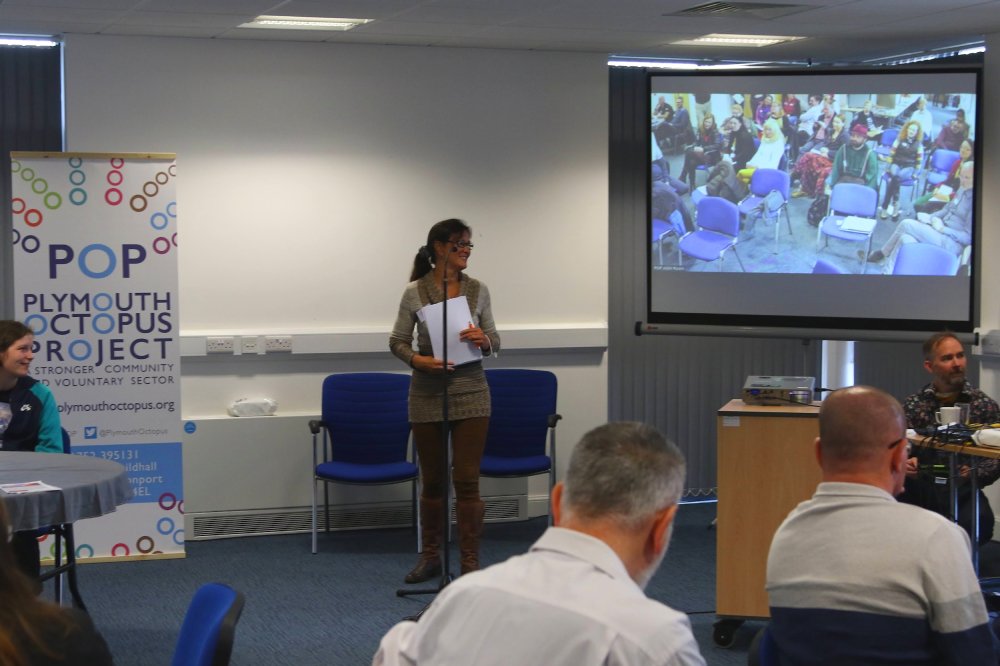Plymouth Octopus is a cosmolocal CAN in action
Posted on 18 Feb 2022 Categories: Blog, Cross-posts, Local initiatives, New democratic models, New economic models
by The Alternative UK
As we know from long experience, Plymouth is a world-class powerhouse of social and civic enterprise – and it’s richly demonstrated in the Plymouth Octopus latest newsletter.
POP (as it’s locally known) isn’t just the kind of supportive and coordinating network that we seek out under the concept of CANs. It’s also, as this blog shows, a great example of cosmolocalism – combining gritty local practicality with a global vision and reach.
In November of this year, POP invited the civic democracy adviser Cormac Russell to speak via Zoom to their AGM. Cormac is a new name to us – but manifestly a powerful and experienced voice around issues of community power across the globe. He is a faculty member of the Asset-Based Community Development (ABCD) Institute at Northwestern University, Chicago, and author of the 2020 book Rekindling Democracy, which is summarised here:
The author focuses on rebuilding democracy from the asset-based community development (ABCD) perspective. ABCD builds on what is already present within a community; citizens are collectively being responsible for one another’s well-being.
The five principles of the ABCD approach are that actions are citizen-led, relationship-oriented, asset-based, place-based, and inclusion-focused. By using their primary assets first, communities become confident that when an issue arises, they can look inward for the solution instead of being “supine, deficient, passive clients of institutional, top-down change” (p 23 of the book)
However, Russell posits that “power to the people” campaigns are “not always the best tool for a given job” (130). He believes that a better approach is “power from the people” (130), which reinforces ABCD practices. A community decides whether the assets they have can fix the issue, then go from there. Power comes from them instead of being given to them.
Russell proposes that in order for citizen-centered democracy to prosper, a new approach must be implemented: “We must nurture a new space for bottom-up, citizen-led action for the things that are done collectively . . . BY citizens acting as co-creators, mutual makers, and coproducers with their neighbours” (155). In this BY space, ABCD practices are implemented and things are done by communities for communities in a bottom-up approach. Here, citizen-centered democracy grows.
With this approach in mind, the author provides seven community-building principles, which are meant to support citizen-led work in the BY space. The principles are:
-
Find a Local Host;
-
Start by Making the Invisible Visible;
-
Don’t Be Helpful, Be Interested
-
Effective Community Building Goes at the Speed of Trust
-
Start With What’s Strong to Address What’s Wrong
-
The Vital Role of Connectors
-
The Optimum Population Size of a Neighbourhood Is 3000-5000 Residents
-
The Focus Is on Growing a Culture of Community, Not Converting People to Asset-Based Community Development.
A citizen-centered democracy that works from the bottom-up with ABCD practices must be built upon the relationship between institutions and communities, where citizens decide what help they need in a participatory setting and there are proportional responses given to each particular situation instead of an all-or-nothing approach.
More here – and music to our ears, in terms of method. (BTW we’d love to post a recording of Cormac’s talk at the POP AGM, if it’s posted on the usual platforms. Meantime we embed his TED talk below:)
What we love about the Plymouth Octopus Project blog on this event is that it exactly walks Cormac’s talk – which is that it’s an instruction manual for communities on how to put on their own “hybrid” event, just like this! We recommend reading – it’s an extremely useful checklist for a successful event.

We’d also throughly recommend dwelling with the Plymouth Octopus newsletter itself – the energy and creative initiative in the city is striking.
Posted on 18 Feb 2022 Categories: Blog, Cross-posts, Local initiatives, New democratic models, New economic models

